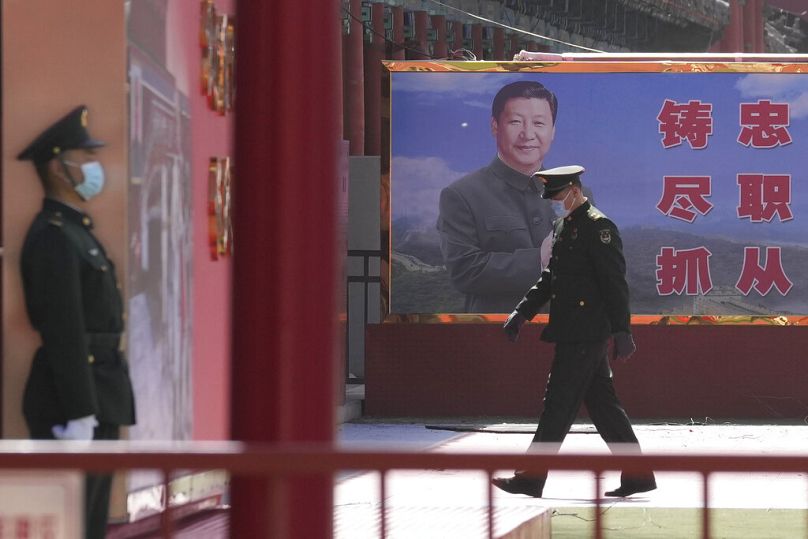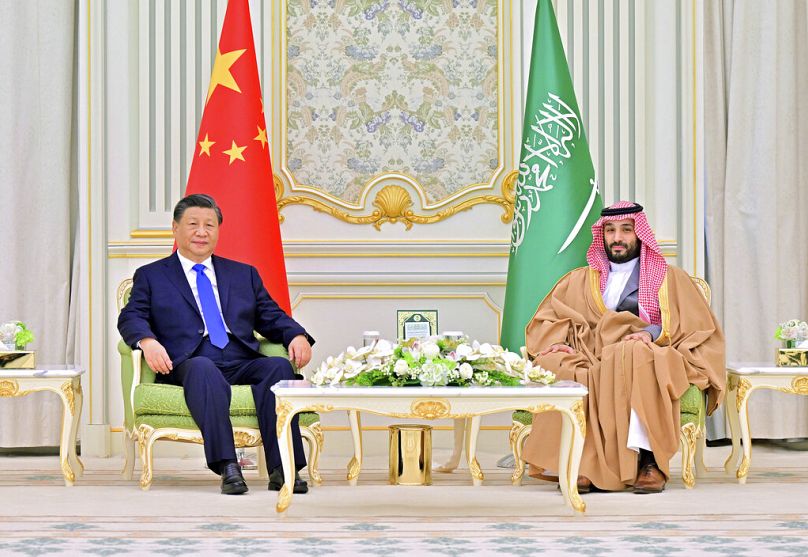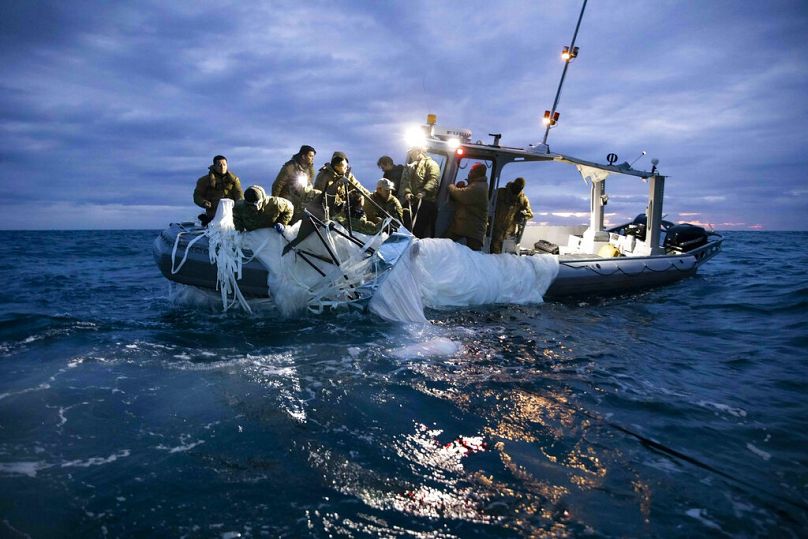The US and EU must not forget that the strongest weapon in their arsenal is their economic might. You can fight balloons with dollars and euros, Oliver Rolofs argues.
With the fourth "unmanned aerial object" being shot down over US airspace in as many as eight days, tensions across the Pacific are reaching levels we had not seen since the depths of the Cold War.
While the war in Ukraine has kept the global focus on Europe, the balloon incidents could be the decisive moment that history books later remember as the spark that caused the US and Europe’s foreign policy to finally pivot towards Asia.
While the rhetoric coming out of Beijing and Washington has been steadily escalating, the US has gradually prepared its entrance into the Pacific arena, forging new alliances and strategic partnerships.
Brussels has been quick to react and catch up.
Both powers have realised the importance of positioning themselves in Asia not to become relics of the past, as the region promises to be the main driver of global economic growth.
However, the US and the EU will need to employ different strategies based on their respective strengths to successfully forge a significant presence in Asia.
Washington's intentions in Asia are clear
The US already possesses a strong foothold in the Asia Pacific, being the second most important trading partner to most nations and over 120 military bases in the region.
As Beijing’s hostility in Southeast Asia grows, it has pushed the nations in the region to seek US deterrence to guarantee their sovereignty.
Countries like Indonesia and the Philippines have started to express repeated concerns over Chinese leader Xi Jinping’s coercive tactics, including several voices at this year’s World Economic Forum in Davos.
There is an opportunity for the US to provide a balancing of powers to nations being increasingly dwarfed into Beijing’s sphere of influence.
The recent launch of the Indo-Pacific Economic Framework agreement (IPEF), which includes 12 regional nations and excludes China, is evidence of this appetite.
The Biden administration should use the IPEF as a springboard to accelerate and strengthen economic and military ties with any Southeast Asian nation seeking to balance China’s influence and ensure their sovereignty as much as their economic security.
The recent announcement of the acceleration of the Enhanced Defence Cooperation Agreement between the US and the Philippines, providing access to four new military bases in the Philippines for the US military, is proof of that.
Energy-producing allies are key in offsetting China's influence
The US possesses a second key advantage — its status as an energy-producing nation. This endows it with the potential to safeguard global energy security and affordability as the energy supply crunch threatens political and economic stability across the world. This, however, requires energy-producing allies.
Saudi Arabia used to hold that special position. However, its growing rapprochement with Russia and, recently, China, has strained its relationship with Washington.
The United Arab Emirates has stepped up to fill the void.
It helped protect US interests in the region by attempting to dissuade Saudi Arabia from enacting an oil production cut in OPEC+ last year when prices were already above pre-pandemic levels.
The ties between Washington and Abu Dhabi are only likely to get stronger as the Emirates also has the ability to exert influence in Africa, the Middle East, and Asia, and can assist the US in shifting its focus within the region.
Brussels is playing a different game
On the other hand, Europe's strategy has been vastly different.
Slightly more opportunistic, Brussels has concentrated on pooling its collective resources to offer significant investments to assume a stronger global leadership role in the future.
The European lighthouse projects within the Global Gateway Initiative offer developing countries an alternative to China's strategic largesse under the Belt and Road Initiative, through which Beijing demonstrates its power along strategic trade routes by developing ports, energy projects and telecommunications networks.
The EU has several projects planned in China's backyard, such as an energy transition partnership with Indonesia and a digital connectivity project in the Philippines.
The same goes for plans in Russia's backyard, such as a hydrogen project in Kazakhstan, which is becoming an increasingly important partner for Europe in questions of future energy and raw materials supply.
Furthermore, Brussels is planning a transport link in Central Asia, two projects in Mongolia and a hydropower plant in Tajikistan.
Hearts and minds are best won through economic might
In the era of strategic competition, deal-making and an ambitious approach to partnerships with ASEAN economies are precisely what is still needed for the EU.
In turn, bilateral engagement with Southeast Asia's giants, Indonesia and the Philippines, will strengthen the case for the holy grail of its Indo-Pacific trade diplomacy: an EU-ASEAN trade deal could and should lead to a free trade agreement to boost growth and strength on both sides one day.
There are good approaches in this that both Washington and Brussels can learn from and, better yet, work on collectively.
As the pivot unfolds, the US and EU must not forget that the strongest weapon in their arsenal is their economic might. You can, indeed, fight balloons with dollars and euros.
The two should also make this message clear when their representatives meet China's top foreign policy official Wang Yi at the Munich Security Conference, which takes place this weekend.
Oliver Rolofs is a strategic security and communication expert. He was previously Head of Communications at the Munich Security Conference, where he established the Cybersecurity and Energy Security Programme.
At Euronews, we believe all views matter. Contact us at view@euronews.com to send pitches or submissions and be part of the conversation.















